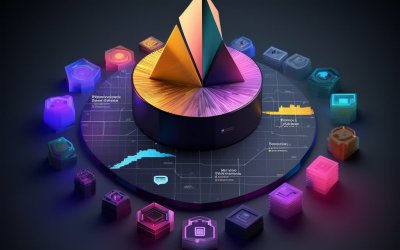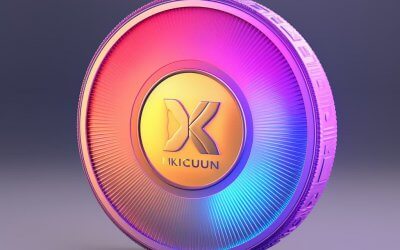Understanding the Bitmap Metaverse on Bitcoin

Keep up to date with Bitcoin on Bitcoin.org
Keep up to date with Ethereum news on Ethereum.org
The Bitcoin blockchain, often viewed as a rigid ledger for financial transactions, is evolving. Thanks to the introduction of Ordinals Theory, it’s ushering in a wave of innovation that could redefine digital interaction. Among these innovations, Bitmap stands out as a groundbreaking venture that merges the concept of digital real estate with blockchain technology.
| Key Features | Description |
|---|---|
| Blockchain Integration | Built on the secure and distributed Bitcoin blockchain |
| Digital Real Estate | Allows ownership claims within a Bitcoin block through inscriptions |
| Decentralization | Ownership and interactions are not controlled by a single entity |
| Unique Experiences | Enables new opportunities and experiences within the Bitcoin ecosystem |
The Essence of Bitmap
At its core, Bitmap leverages Ordinals inscriptions to transform every Bitcoin block into a piece of ‘digital real estate.’ This means anyone can claim ownership of a portion of a Bitcoin block by inscribing data onto satoshis—Bitcoin’s smallest units. The process is inherently decentralized, adhering to a ‘first come, first served’ principle, which ensures fairness and transparency in ownership claims.
How Bitmap Works
Bitmap operates as an open-source standard built directly on Bitcoin. By utilizing both Bitmap and Ordinal Theory, it empowers users to inscribe sats, effectively claiming digital territory within the Bitcoin metaverse. This is done by marking a block with unique attributes like metadata, art, or other creative features, thereby enhancing its value and appeal in this emerging virtual space.
Inscribing Your Mark on the Bitcoin Block
The journey into Bitmap ownership begins by selecting a Bitcoin block and inscribing it with the designation “blocknumber.bitmap”. This action reserves the block, and from there, the owner can add various attributes through a process called Blocktributes. These inscriptions not only allow for personalization but also play a critical role in fostering a dynamic and interactive virtual ecosystem within Bitcoin.
Understanding Bitmap’s Unique Districts and Parcels
Each inscribed block, known as a District, contains Parcels that represent individual transactions. These Parcels are tied to the District and move with it, maintaining a coherent structure unless deliberately separated through further inscriptions. This relationship allows for detailed customization and utility, enhancing the intrinsic value of each digital parcel.
Why Bitmap is Gaining Popularity
The allure of Bitmap is multifaceted. It’s built on the secure and decentralized nature of Bitcoin, making it a novel platform for the crypto community. The scarcity of Bitmap Districts, coupled with their ability to carry Bitcoin’s robust properties, positions them as attractive speculative assets. Moreover, the ability to modify and control blocks encourages creativity and could attract a swath of developers to innovate within this space.
The Future Implications of Bitmap on Bitcoin
As Bitmap continues to develop, its potential impact on the Bitcoin ecosystem is profound. It offers a new layer of functionality and engagement, transforming passive blocks of data into active and customizable assets. This could not only spark developer interest but might also pave the way for mainstream adoption of Bitcoin’s more versatile uses.
Bitmap represents more than just a technological novelty; it is a harbinger of the expansive possibilities of Bitcoin’s future. By turning static blocks into dynamic assets, Bitmap invites everyone from tech enthusiasts to creative professionals to partake in and shape this new digital frontier. Whether for investment, innovation, or personal expression, Bitmap offers a unique platform to engage with the digital world in a way that was previously unimaginable on the Bitcoin blockchain.
FAQ for Bitmaps on Bitcoin
What is Bitmaps on Bitcoin?
Bitmaps on Bitcoin is a decentralized application (dApp) that functions within a Bitcoin-powered metaverse framework. It utilizes Bitcoin’s blockchain technology to create a virtual environment where users can interact, transact, and explore digital landscapes and assets using Bitcoin as the primary currency.
How does Bitmaps on Bitcoin utilize blockchain technology?
The platform leverages the security, transparency, and decentralization aspects of the Bitcoin blockchain to manage transactions and ownership of digital assets within the metaverse. This ensures that all interactions and transactions are secure and immutable.
What can users do within the Bitmaps on Bitcoin metaverse?
Users can engage in a variety of activities such as buying, selling, or trading virtual real estate, creating and interacting with digital content, participating in virtual events, and exploring different environments created by users around the world.
Are there any specific tools or features that enhance the user experience in Bitmaps on Bitcoin?
The platform may offer tools for content creation, a marketplace for trading assets, social interaction capabilities, and possibly even VR (virtual reality) support to enhance immersion. User experience enhancements focus on ease of use, robust community engagement features, and high-quality visual and interactive elements.
How does Bitmaps on Bitcoin handle user privacy and security?
By utilizing the Bitcoin blockchain, the platform ensures that all user data and transactions are secured through encryption and decentralization. Privacy features are typically built-in to give users control over their data and how they interact within the metaverse.
How can new users get started with Bitmaps on Bitcoin?
New users would need to create an account, possibly linking a digital wallet compatible with Bitcoin. Instructions on how to navigate the platform, purchase or trade assets, and participate in community events are generally provided through in-app tutorials or help centers designed to assist newcomers in acclimating to the virtual environment.
Where to buy cryptocurrency in Canada and US?
Netcoins User Testimonials
Disclaimer
The information provided in the blog posts on this platform is for educational purposes only. It is not intended to be financial advice or a recommendation to buy, sell, or hold any cryptocurrency. Always do your own research and consult with a professional financial advisor before making any investment decisions.
Cryptocurrency investments carry a high degree of risk, including the risk of total loss. The blog posts on this platform are not investment advice and do not guarantee any returns. Any action you take based on the information on our platform is strictly at your own risk.
The content of our blog posts reflects the authors’ opinions based on their personal experiences and research. However, the rapidly changing and volatile nature of the cryptocurrency market means that the information and opinions presented may quickly become outdated or irrelevant. Always verify the current state of the market before making any decisions.
Related Posts
Lightning Network Micropayments: Benefits And Challenges
Lightning Network...
Bitcoin Dust: What It Is And How To Consolidate
Bitcoin Dust: What It...
Bitcoin In Space: Satellite Nodes And Extraterrestrial Bitcoin Transactions
Bitcoin In Space:...
Stratum V2 What And How Does It Help Bitcoin Mining
Stratum V2 What And How...
Ethereum And Its Competitors: How Do Other Smart Contract Platforms Compare?
Ethereum And Its...
Bitcoin Address Reuse: Dangers Of Reusing A Bitcoin Address More Than Once
Bitcoin Address Reuse:...
Is Kucoin Banned In Ontario Or Is Legal In 2023?
Is Kucoin Banned In...
5 Best Ways To Buy Crypto With A Credit Card In Canada 2023
5 Best Ways To Buy...
How To Buy Crypto In Your TFSA In Canada 2023
How To Buy Crypto In...
Tracing The History Of Ethereum Network Upgrades – A Comprehensive Timeline
Tracing The History Of...
The Sec Vs Ripple: Implications For XRP
The Sec Vs Ripple:...
Understanding XRP’S Consensus Protocol: How It Differs From Bitcoin’s Proof-Of-Work
Understanding XRP’S...










